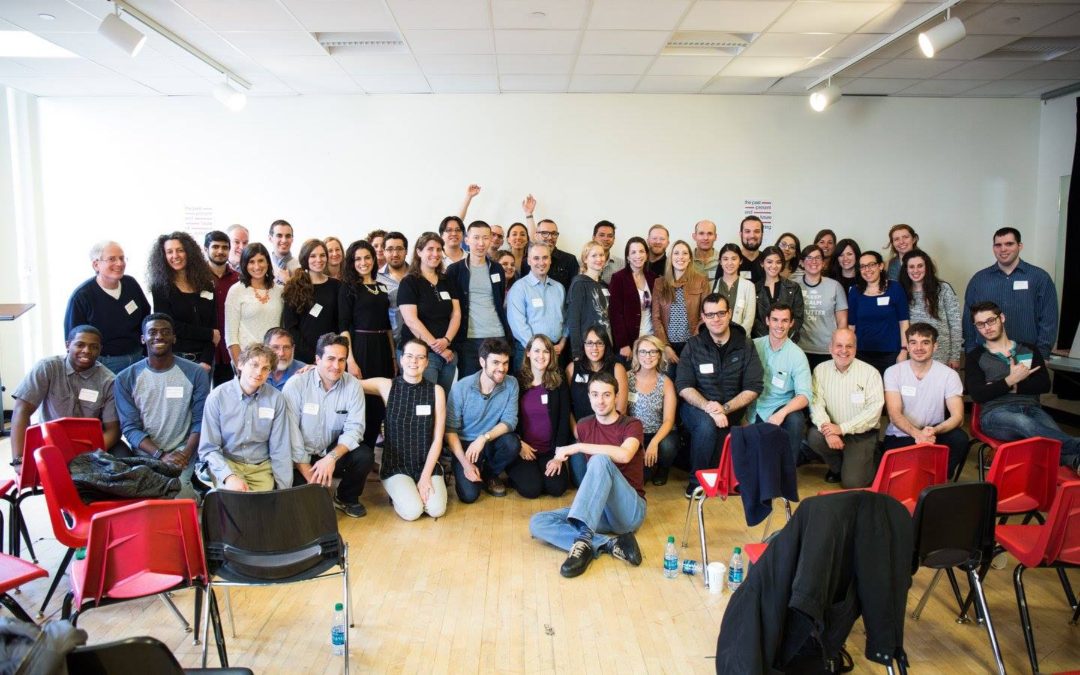…and our First Conference!
Last Monday we had our May monthly support group at our usual spot. Many of us had also attended our first local self-help conference the day before, where over 60 stutterers sat together and explored some of our community’s most important questions. This was a special day for many of us, and you can expect similar opportunities in the near future as our community here in NYC continues to grow.
As for our monthly meeting, we split up into three smaller groups, shared our thoughts about our conference, and much more. Here is a glimpse of what was discussed.
What are we?
Someone said he was taught that the word “stutterer” meant someone who was defined by stuttering and who let it bring them down, whereas “person who stutters” meant that the person was a person, and that stuttering was only a part of them. We responded by explaining that some people feel that way, but that other people feel otherwise. We went into the history of that a little, and about how the Did I Stutter blog and other people prefer “stutterer”. Someone said that when his stuttering really gets to him, he actually feels more like a stutterer than like a person at all.
Deaf Community
We talked about parallels between the Deaf community and the stuttering community. How the Deaf community has responded to the idea of “hearing loss” by arguing for “Deaf Gain”—the idea that being deaf brings some advantages and benefits—and whether stutterers might be able to do something analogous.
Benefits of stuttering
We talked about occasional benefits of stuttering. Bonding intimately during conversation, or even just making rude, impatient people uncomfortable on purpose. We recalled Emma’s quote from the conference from John Updike, which is so beautiful: “Those who stutter win, in the painful pauses of their demonstration that speech isn’t entirely natural, a respectful attention, a tender alertness. Words are, we are reassured, precious.” We discussed this idea, and what Updike might have meant when he said that speech isn’t entirely natural. (Updike stuttered.)
Taking it back
One of our members recently presented to her class what stuttering is, and how to best prepare a teacher when one of her students is a stutterer. This opened up an interesting conversation about whether a student should be called on in class, and what we would have preferred when we were kids. Going along with much of the theme from the day before at our conference, one of our members asked, how could it have been different for the student if the teacher not only knew about stuttering, but if the child actually lived in a world where she believed that stuttering was truly okay.
This is supposed to be inspiring?
We discussed how the media often talks about individuals overcoming their stuttering, and then going on to have successful professional careers. Here is one such example. Some of us expressed concern that these stories stigmatize stuttering. One member asked, ‘why not just say, this is a guy who stutters, he’s a good coach, and he’s successful in what he does?’ What does a child who stutters, or even an adult, think about their own stuttering when stuttering is too often viewed as something we should try to disassociate ourselves with?
Thank you to everyone for coming out on Monday night.

